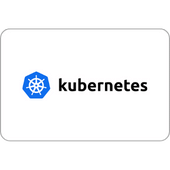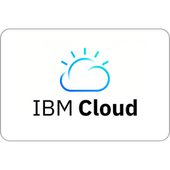The Customer
A leading global airline company.
The Project
Revolutionizing Airline Operations with Cloud Containerization
Overview
The Customer faced a significant challenge with their online application, which was running in a data center on VMs managed by another provider. The high cost of hardware refreshes and the need to modernize their infrastructure led the Customer to embark on a project to containerize their monolithic application and migrate it to the IBM Cloud platform. The goal was to reduce costs, improve scalability, and enable faster deployment cycles.
The Challenge
The existing data center structure was becoming increasingly expensive to maintain, with the need for regular hardware refreshes costing several million dollars. The Customer realized that investing in new hardware would only result in outdated technology in a few years. It became clear that a shift to the cloud was necessary to reduce costs and ensure future scalability.
The Solution
To address the Customer's challenges, we proposed containerizing the monolithic application and migrating it to the IBM Cloud platform. Containerization offered the flexibility and scalability required to run the application on Kubernetes, which was the chosen strategy for the cloud environment. The unique aspect of our approach was the use of Kubernetes to run the monolithic application. While there were other lightweight cloud options available, containerization was essential to support the specific software requirements of their application and the various tools used for content publishing and marketing.
The Technologies & Methodologies
Kubernetes: The container orchestration platform used to manage and run the containerized monolithic application on the IBM Cloud platform.
IBM Cloud: The chosen cloud platform for hosting the containerized application, providing scalability, reliability, and security.
Various vendor tools: Used for content publishing and marketing, ensuring compatibility and seamless integration within the cloud environment.


The Business Benefits
Cost Reduction: By migrating to the cloud and containerizing the monolithic application, the Customer was able to significantly reduce the expenses associated with hardware refreshes and data center maintenance.
Improved Deployment Speed: The project enabled the Customer to transition from a weekly release cycle to the ability to deploy updates every hour if desired. This resulted in faster time-to-market and enhanced agility.
Scalability and Flexibility: Containerization on the IBM Cloud platform provided the Customer with the ability to scale resources as needed, ensuring optimal performance and responsiveness to customer demands.
Streamlined Processes: The new deployment model simplified the release process, allowing for more frequent updates and reducing the risk of disruptions or delays.
Enhanced Collaboration: The project required collaboration across multiple teams within the Customer's organization, fostering a culture of cross-functional cooperation and knowledge sharing.
Lessons Learned
During the project, several valuable lessons were learned:
Proper training and information sharing are crucial when transitioning to a new deployment model, especially when it involves a significant shift in processes and tools.
Choosing the right cloud platform is essential for long-term success and should align with the organization’s specific requirements and goals.
Collaboration and communication across teams are vital to ensure a smooth transition and successful implementation.
Why Improving?
In conclusion, the containerization of the Customer's monolithic application and migration to the IBM Cloud platform provided significant benefits, including cost reduction, improved deployment speed, scalability, and streamlined processes. This project showcased the power of containerization and cloud technology in modernizing legacy applications and enabling organizations to stay competitive in today’s rapidly evolving digital landscape.




